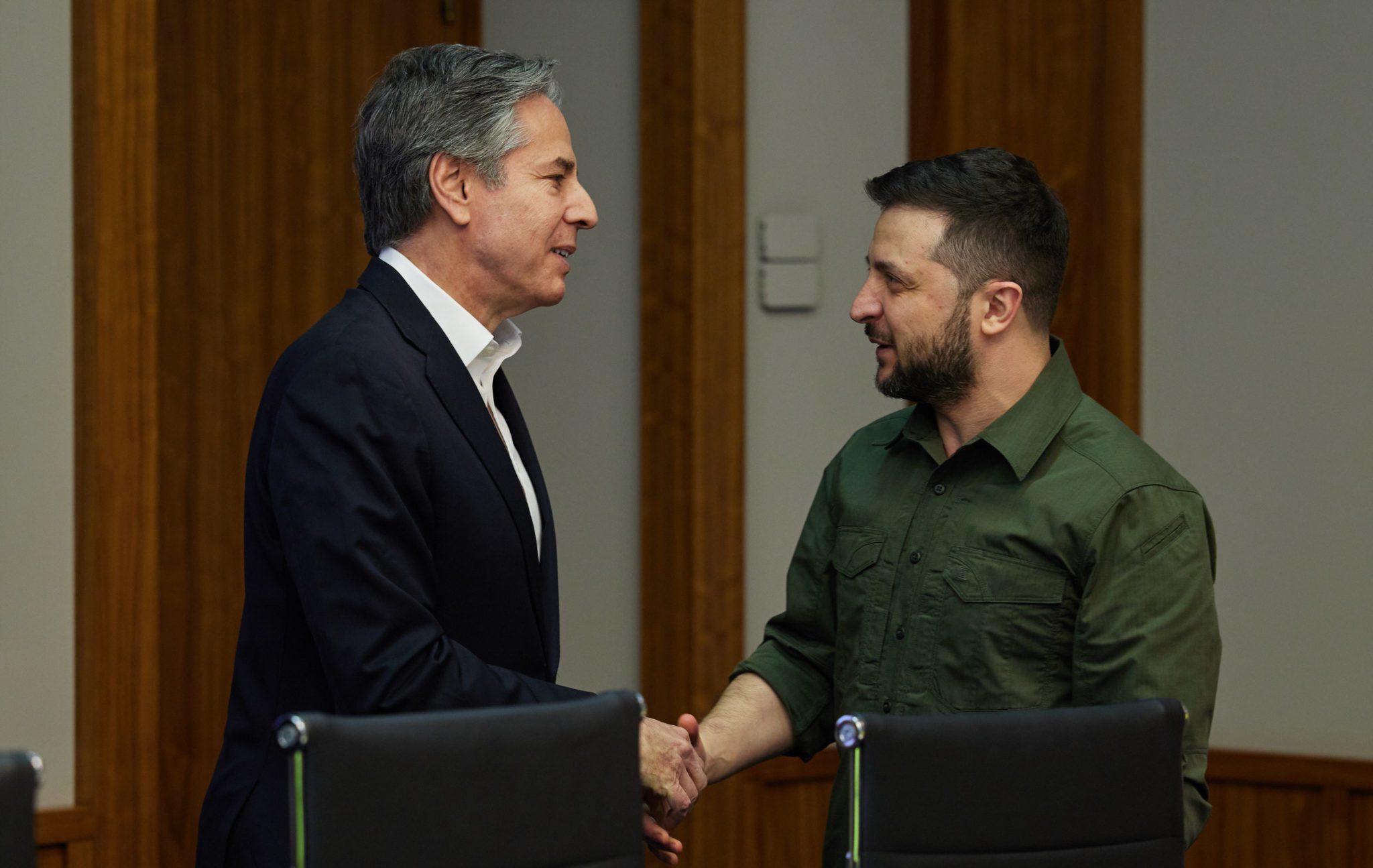The War for Globalism in Ukraine

During the 1999 Kosovo air campaign, President Bill Clinton told Americans, “That’s what this Kosovo thing is all about.… It’s globalism versus tribalism.”
In 1999 very few Americans paid attention to Clinton’s remarks. Kosovo was yet another conflict on someone else’s soil with little or no relevance to daily life in America. Frankly, Clinton’s use of the word “tribalism” probably confused many Americans. To most Americans, nationalism means devotion to the country, the U.S. citizen’s readiness in crisis or conflict to place the needs of the country above the citizen’s own. American nationalists aren’t tribal. They want to protect and defend the United States, its historic institutions and the rights embodied in its laws, not start wars.
The term “globalism” has since evolved to mean much more than free trade and comity between nations. Today, the Western nation-state and the nationalism it inspires are condemned by globalists as the sources of prejudice, exclusivism, and war. In retrospect, Clinton’s use of the term “globalism” is in continuity with the Biden administration’s proxy war against Russia.
To Washington’s contemporary ruling political class, globalism involves more than purchasing products manufactured by cheap labor in non-Western countries. Washington-led globalism now promises the dissolution of traditional political and social forms of human organization—national governments, borders, identities, cultures—and replaces them with a world of consumers united only by their dependence on amorphous corporations, unaccountable non-governmental organizations (NGOs), and supra-national institutions.
Put another way, globalism is now synonymous with the progressive left’s view of the postwar liberal international security order that must expand to survive. Washington’s proxy war in Ukraine is the globalist scheme to transcend the continuity of history, culture, and geography embodied in the nation-state, to homogenize disparate peoples in the process of assimilating rapid social and technological change. In this sense, Ukrainian President Volodymyr Zelensky’s recent call for Washington and its strategic partners to establish global control of Russia’s nuclear weapons aligns nicely with the Biden administration’s progressive globalist vision.
And therein lies the problem. Nations and their peoples do not evolve in a vacuum, nor do they surrender their existence without a fight.
These points should alert Washington to the fact that its proxy war for globalism in Ukraine involves national identity, a dynamic force that stirs the deepest human emotions. Yet it is not just two kinds of nationalism, Ukrainian and Russian, rooted in language, culture, and history, that are in conflict. Washington’s brand of globalism, dressed in the guise of NATO expansion, directly challenges Russian national identity and culture. It is Russia’s unique geographic role in linking European and Asian civilization, as well as its Orthodox Christian culture—a belief system enshrined in Russia’s current state ideology, foreign, and security policy—that are imperiled.
In light of U.S.-led NATO military interventions in the Balkans, Afghanistan, and Iraq, it is fundamentally dishonest to pretend that NATO’s encroachment on Russia’s western border is benign. But it is far more dangerous to ignore the truth that, in Moscow’s view, NATO expansion into Ukraine is inextricably linked with the extension of globalism to Russia.
Statements by the U.S. Secretaries of Defense and State that Washington wants to “weaken” Russia make it clear that Washington’s allegedly benevolent “rules-based order” is of no benefit to Russia. In fact, the statements simply confirm in Russian minds the belief that the U.S. is a co-belligerent in Ukraine’s war for NATO expansion.
Perhaps even more important is the suggestion that Poland, NATO’s proverbial wild child, would provide so-called “peacekeeping forces” to Ukraine. It’s no secret to Europeans that Poland dominated most of Ukraine for nearly 400 years, or that Moldova, though technically Romanian, spent 300 years as a vassal state of the Ottoman Empire. Washington’s apparent readiness to introduce revanchist Polish forces into Western Ukraine and, potentially, revanchist Romanian forces into Moldova suggests that Washington’s globalists will do anything to harm Russia even if it involves advancing the territorial ambitions of Russia’s historic enemies.
War still tests the legitimacy of those who govern inside the warring states, as well as the resilience of their societies. This observation applies to the Biden Administration as much as it does to the governments of Zelensky and Putin. As he presides over fiscal crisis, scarcity, and rising criminality in America, and displays his willful ignorance of Eastern Europe and its peoples, President Biden and his supporters on the Hill are stirring a regional pot that could quickly boil over with dangerous consequences for Washington and its NATO partners. As Sigmund Freud wrote of Biden’s “internationalist” predecessor Woodrow Wilson, Biden “has a marvelous ability to ignore facts and believe what he wants.” However, it’s much tougher now than it was in 1917 to pull the wool over Americans’ eyes.
Washington actively cultivated Ukraine’s war with Russia for many years, harnessing Ukrainian nationalism—the incendiary force globalists claim to loathe—in service to their cause. It worked. Now the same globalists are prolonging the war with arms, advice, and encouragement, even though Ukraine is being destroyed.
In the last 30 years, Washington’s overemphasis on military assistance and intervention in the pursuit of regime change has drawn the U.S. into conflicts and crises in the Balkans, the Near East, North Africa, and Southwest Asia. American nationalists are not responsible for the current war in Ukraine or the last three decades of Washington’s self-defeating wars. But American nationalists are needed now more than ever to stop the globalist war to destroy Russia before that war spreads like a cancer across Eastern Europe.